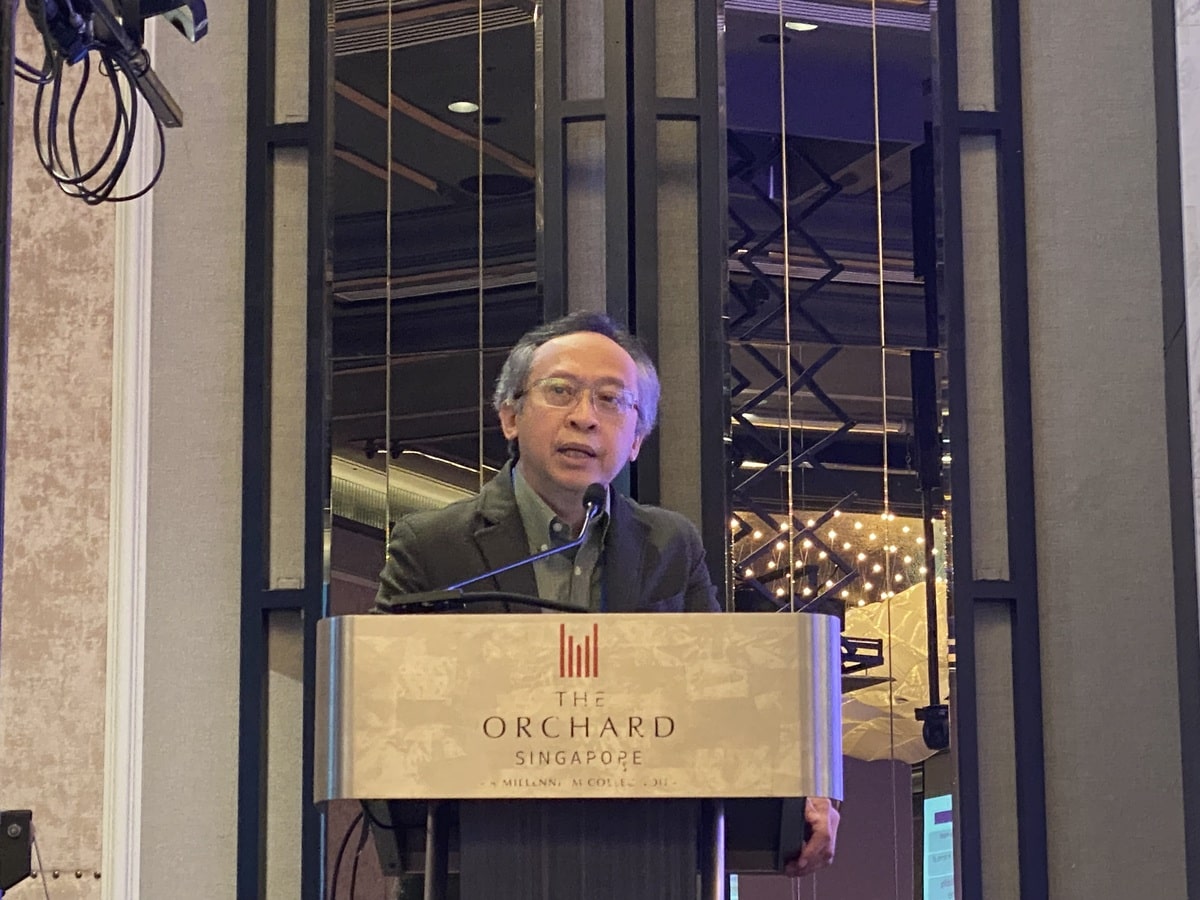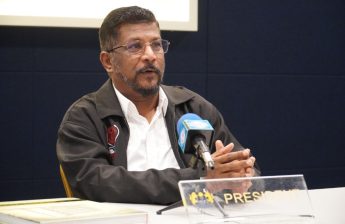KUALA LUMPUR, April 19 — Dengue Prevention Advocacy Malaysia (DPAM), an alliance of medical and community organisations, plans to train health care professionals nationwide to reduce dengue mortality.
Dengue remains a significant public health challenge in Malaysia, with cases and deaths on the rise. According to the Ministry of Health’s (MOH) latest dengue report, a cumulative 41,565 dengue cases were reported by the 12th epidemiological week of 2024 ending March 23, up 59 per cent from 26,222 cases reported in the same period last year.
A total of 28 deaths from dengue fever complications were reported up to the 12th epidemiological week this year, rising 65 per cent from 17 fatalities reported in the same period in 2023.
”We will be organising a Masterclass on the Management of Dengue for health care professionals that we’ll be taking nationwide,” DPAM chairman Dr Zulkifli Ismail, who is also a paediatrician, told CodeBlue.
“These will be to train HCPs on proper monitoring of dengue and appropriate management with the aim of reducing mortality due to dengue and its complications. We expect to train HCPs in the whole country by going to different regions and also sharing videos of such training sessions.”
While incidence of dengue fever in Malaysia has not reduced over the years, Dr Zulkifli pointed out that the case fatality rate could be controlled with appropriate management and following protocols.
He cited proper fluid monitoring and management of dengue cases by clinicians and support staff to prevent severe outcomes like dengue shock syndrome or dengue haemorrhagic fever that will be the cornerstone of managing dengue.
Clinical monitoring for early signs of shock or bleeding and understanding the natural history will be taught so that HCPs will be more confident at making decisions to intervene.
“This is especially needed now when the age group of cases and deaths has moved from children to young adults and the elderly. These adults have comorbidities that need special attention when they are infected,” he said.
“The mainstay of management of dengue is appropriate and proper fluid and supportive management. There is no antibiotic or specific medication to treat dengue.”
Citing the MOH’s objective to reduce dengue cases by 5 per cent annually, based on the National Dengue Prevention and Control Strategic Plan 2022-2026, Dr Zulkifli said the specific target for 2024 is 78,055 cases.
Given the current trend with more than 41,000 dengue cases already being reported nationwide just by the 12th epidemiological week of the year, Malaysia is likely to miss its target of 78,000 plus cases for 2024.
The MOH also intends to maintain the dengue case fatality rate at below 0.2 per cent.
“Although the World Health Organization (WHO) has set a target of case fatality rate (CFR) of 0.5 per cent by 2025, Malaysia has achieved this target since 2001, so MOH has set a lower target of 0.2 per cent for the whole country, and for every state,” Dr Zulkifli explained.
“Historically, the highest CFR for Malaysia was 0.63 per cent in 2000, while the lowest was 0.08 per cent in 2021. We have to maintain these low CFRs and one of the ways is to improve on our case management, mainly by careful monitoring and understanding of natural history.”
The WHO’s Global Strategy for Dengue Prevention and Control 2021-2030 targets reducing dengue deaths to zero by 2030.
Surveillance And Monitoring Of Qdenga Vaccine, Registry Of Clinics Providing Dengue Vaccination
The Drug Control Authority’s (DCA) recent conditional approval of Takeda’s Qdenga dengue vaccine offers a new weapon in Malaysia’s fight against dengue.
DCA’s conditional approval requires surveillance for adverse events following immunisation (AEFI), including monitoring cases of dengue infection (breakthrough cases) or severe dengue among those involved in the surveillance.
Dr Zulkifli said DPAM has invited representatives from Takeda, a multinational pharmaceutical company headquartered in Japan with a Malaysia office, to brief the group on its new vaccine.
“We hope to strategise surveillance after we start using the vaccine here. The vaccine, called Qdenga, looks promising and has been approved for use in Indonesia, Thailand, Brazil, Argentina, Europe and now Malaysia. As the MOH wants surveillance and monitoring after the introduction of the vaccine, DPAM will assist in this endeavour.”
DPAM plans to set up a registry of private clinics that provide the Qdenga dengue vaccine, similar to Immunise4Life’s clinic database providing adult vaccines.
“DPAM will be involved in advocating for the vaccine among the public in addition to teaching HCPs on the availability, safety and use of Qdenga,” said Dr Zulkifli.
“Public engagement will be through social and traditional media with updates in websites of professional bodies, as well as updating current guidelines on dengue management and adult vaccination.”
Dr Zulkifli anticipates a gradual rollout of the Qdenga dengue vaccine in the private sector before wider public programmes are implemented.
“A fully subsidised vaccination programme requiring two doses will not be on the horizon at this stage. As with all other vaccines in this country, Qdenga will be used in the private sector first for a number of years,” he said.
DPAM To Discuss Dengue Vaccine With Selangor State Government
DPAM will be discussing solutions with the Selangor Public Health Advisory Council (Selphac) on the dengue epidemic, particularly on the implementation of the new Qdenga vaccine.
“It is premature for me to disclose the details. There will be certain strategies that will be discussed and it will involve everything about dengue control and reduction of dengue mortality,” Dr Zulkifli said.
“The control will also involve environmental issues, vector control using Wolbachia-infected mosquitoes, detection of breeding sites and use of larvicide. There is never a single strategy that will work in dengue because of the presence of the vector (the Aedes mosquito), an environment that harbours breeding places for them, and human behaviour.”
Selangor has the highest number of dengue hotspots in the country. According to the MOH, a total of 141 hotspot localities were reported nationwide in the 12th epidemiological week of the year (March 17 to 23), 118 of which were in Selangor, plus 13 in Kuala Lumpur and Putrajaya.
“Introducing and highlighting the vaccine in dengue hotspots makes a lot of sense because we have the opportunity to look at breakthrough infections and reduction of deaths due to dengue in these areas,” Dr Zulkifli said.
“The vaccine in 2024 may be a game-changer if it works as well as in other countries.”
Literally ‘Everybody’ Must Be Committed To Dengue Control
DPAM’s plan to combat dengue extends beyond health care professionals. The organisation primarily led by clinicians intends to engage the public through social and traditional media campaigns.
Public education will focus on raising awareness about dengue symptoms, seeking early medical attention, and practising preventive measures like mosquito control.
The Auditor-General’s 2022 report highlighted a lack of achievement in dengue control activities like mosquito breeding site elimination (FTP) and fogging (SRT), besides incomprehensive results from the Wolbachia mosquito project, as well as the failure of health education and promotion in curbing dengue cases.
Dr Zulkifli said DPAM understands that the Wolbachia project is “very expensive”, as he called for proper evaluation to claim that the project is worth the money spent.
“Personally, I would welcome any local data on the effectiveness of this project as it has been well documented in Yogyakarta, Indonesia and Singapore,” Dr Zulkifli said.
He also stressed that effective dengue control in Malaysia requires participation from literally “everybody”.
“By ‘everybody’, I mean the public, academia, private sector, building contractors, engineers, private and public hospitals and clinics, government and politicians. It should be a concerted national effort by every individual.
“If we all pitch in and cooperate in making our environment clean, getting rid of mosquito-breeding places, seeking early treatment for fevers, it will make a difference.”
DPAM, launched in June 2023, is an independent advocacy group that brings together like-minded non-governmental medical and community organisations to synergise efforts in supporting the MOH to strengthen dengue prevention, management, and control in Malaysia.
The leading societies in DPAM are the Malaysian Paediatric Association (MPA), Malaysian Society of Infection Control and Infectious Diseases (MyICID), Malaysian Society of Infectious Diseases and Chemotherapy (MSIDC), and Malaysian Public Health Specialist Society (PPPKAM).
DPAM’s collaborating societies include the Malaysian Society of Parasitology and Tropical Medicine (MSPTM), Malaysian Medical Association (MMA), Asia-Pacific Academic Consortium for Public Health Kuala Lumpur (APACPH-KL), and Rotary International District 3300.








